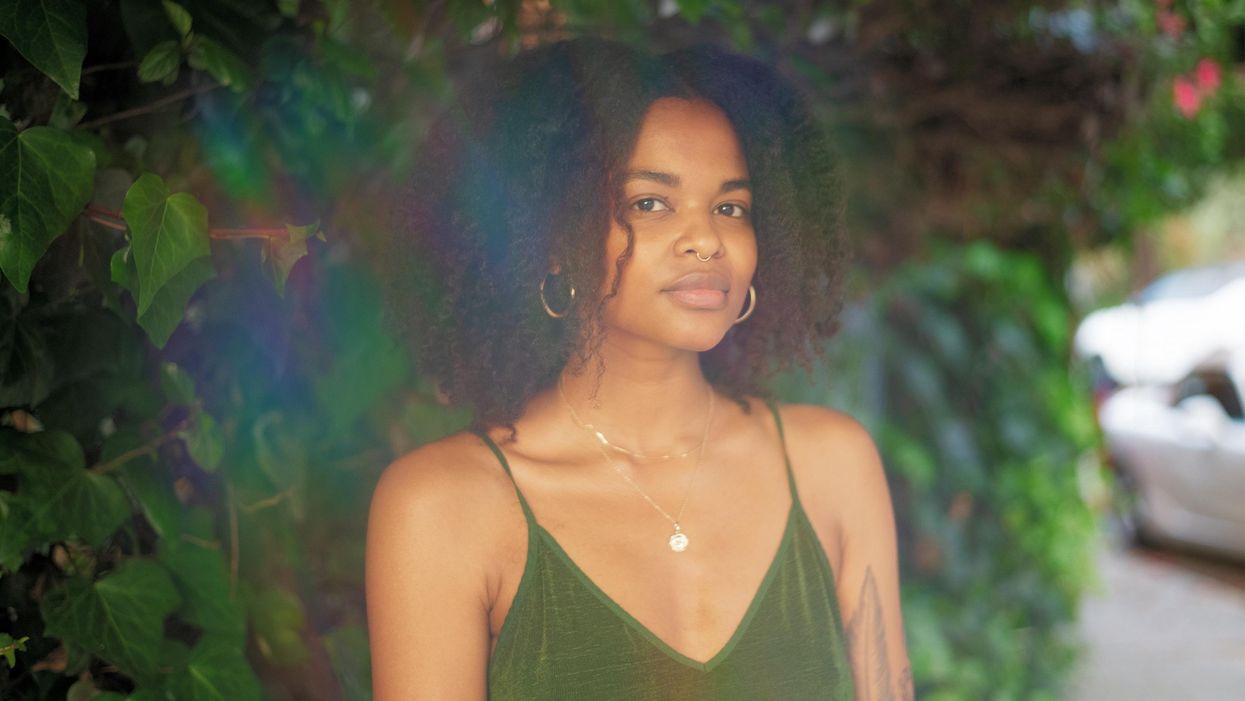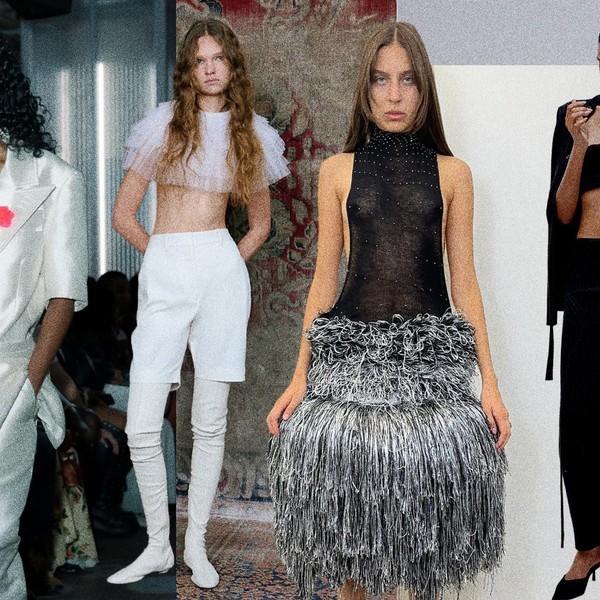This Sexuality Doula Wants You to Reimagine Pleasure
"I am constantly wanting to encourage folks to take orgasm off the table."

When Ev’Yan Whitney was eight years old, they signed a purity contract, swearing to abstain from sex before getting married. Signing this locked away a sense of curiosity—with sex completely off-limits, they harbored feelings about sexuality that took years to unlearn. “I was given all kinds of messages about my body being the pathway to sin and how your virginity is the most important thing about you,” they tell Coveteur. Today, they’re a sexuality doula.
You’ve probably heard of a doula before, but only in a certain context: shepherding parents through pregnancy, labor, and birth. Whitney coined the term to describe how they support clients’ sexual self-discoveries. Instead of helping expectant parents breathe through contractions, they help clients take control of their sex lives.
Based in Los Angeles, Whitney came to the practice organically. While taking stock of their own relationship to sex, they found that they had a lot of unresolved trauma. “I had a really, really fucked up relationship with sex,” they explain. “I was hearing all of my other friends talk about how they were having the best sex of their lives and how they felt super confident and comfortable while I felt so closed off and broken.” As they worked through those feelings, they started a blog, garnered a following, and etched out a unique space in sex education and sex activism, not necessarily as an expert but as a support system—their work revolves less around giving strict answers to questions and more around guiding clients on which questions to continuously ask themselves.
Whitney and I connected on similar backgrounds—they signed a purity contract, I wore a purity ring. In recent years, I've come to learn how my exposure to purity culture warped my perception of pleasure and I've only just started unravelling what that all means. This is where Whitney's journey as a sexuality doula picked up over a decade ago. Ahead, I spoke with Whitney about the questions that changed their relationship to sex and why pleasure isn't always about orgasms.
How would you describe your work as a sexuality doula?
"I'm a companion for folks who are on this journey of wanting to understand and liberate their sexualities, but it's not just about the sex that they have. The work that I do really focuses on this holistic aspect of 'self.' It's not just me telling people how to have sex or what the best sex positions are. I'm really curious about what kind of relationship we have with our bodies and what is getting in the way of us being able to fully access our bodies.
Things that come up a lot with my clients are gender and sexual trauma. There are a lot of barriers to being sexually free. My work as a sexuality doula is about helping folks get to a space where they can understand themselves better, where they can be curious about who they are, and step into brighter, bigger shoes of their being-ness when it comes to their sexuality and their gender. I want to know what sexuality looks like on the other side of trauma and shame—that’s what being a sexuality doula is to me."
What are some of the things that you help your clients unlearn?
"A lot of the things that come up in my work are folks dealing with sexual trauma—that is a very big one. I would say 95 percent of the folks that I've worked with in my career have been sexually traumatized in some capacity, whether that's through a rape, religious trauma, or just through the trauma of being a Black queer person walking around the world. Those are the things that folks come into our work together with. There are a lot of internalized stories that folks have because of the trauma that they've experienced. They have ideas of what sex and gender should look like.
These [ideas] are keeping folks from being able to access the pleasure and joy of being in their lives. I like to tell folks that sex gets people through the door with me. But in our first session, I ask them questions like, ‘What kinds of ways are you denying your body the experience of feeling good?’ I believe that the way that you do one thing is the way that you do everything. And if you are in a space of dysphoria and disconnection with your body in everyday life, you are likely feeling that when you're having sex with someone.
I've definitely had folks come to me on this intersection of sexual liberation and gender identity. I've worked with many clients who didn't know that they were trans or non-binary, but when we started working together, they realized that they’ve been looking at life through this very gender normative lens. So much of my work is really about queering folks. And when I say queering, I'm not just talking about homosexuality, I'm also speaking to giving people permission to be who they are even if that doesn't look like what we have been taught a sexual being should look like. Many folks come to me because they don’t have sexual desire in the ways that the media shows—they don't get horny or want to sleep with multiple people. They come to me thinking that there's something wrong with them, but when they walk out of our sessions, they're like, 'Whoa, asexuality.' So much of my work is about asking people questions, getting them curious, and decolonizing their idea of what gender, sex, bodies, relationships, and desire should look like."
If someone wanted to step into their optimal sexual self, where would you recommend they begin?
"Something that really helped me when I was early on in my journey was answering two questions: Who do I want be as a sexual being and what do I think is getting in the way of me being this individual? What I like about these two questions, which have so many questions within them, is that the first question gives folks the permission to dream. And a lot of us aren't able to do that because there's a lot of baggage that comes with sex. We've been taught that we need to take sex seriously or that it needs to look a very specific way."
What are your thoughts on the orgasm gap?
"The orgasm gap is real, but I'm just so tired of people talking about it. The way that I've seen it used and overused is to sell products, like ‘Close the pleasure gap by buying a sex toy.’ That's a little yuck to me. But it’s also obvious that heterosexual women who are in relationships with heterosexual men are having less orgasms.
I think a lot of importance is put on orgasm and rightfully so—orgasms are great—but I'm a little wary of our obsession with the idea that sex means orgasms and that a successful sexual experience means you have had an orgasm at the end of it. We should question that. And through my work, I’ve found that for a lot of people, orgasm is actually not that important, but they think it is because everybody is telling them that it is.
There's a lot of pressure that we put on ourselves to orgasm and to close that orgasm gap. But as someone who talks about pleasure, I am constantly wanting to encourage folks to take orgasm off the table and see if they can experience sex and feel the pleasure of the experience and not have orgasm be the grand finale. What if the main event was you caressing your shoulders? How would you have sex if the orgasm didn't exist? I just really want to give people permission to question everything. That's what my work around decolonizing sexuality, gender, desire, and pleasure is about."




